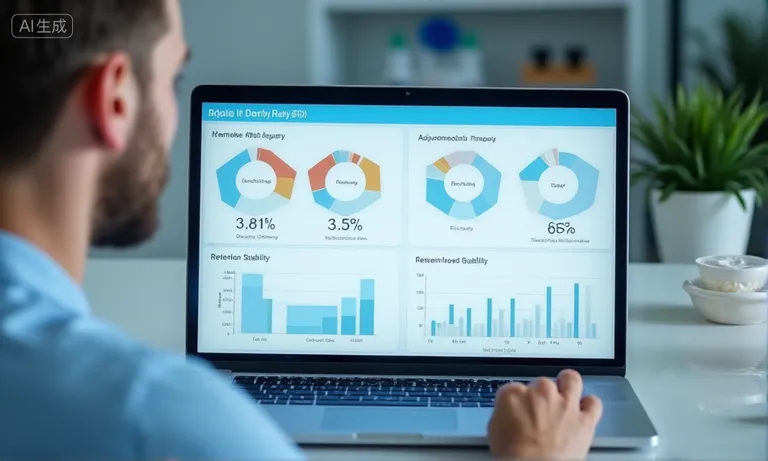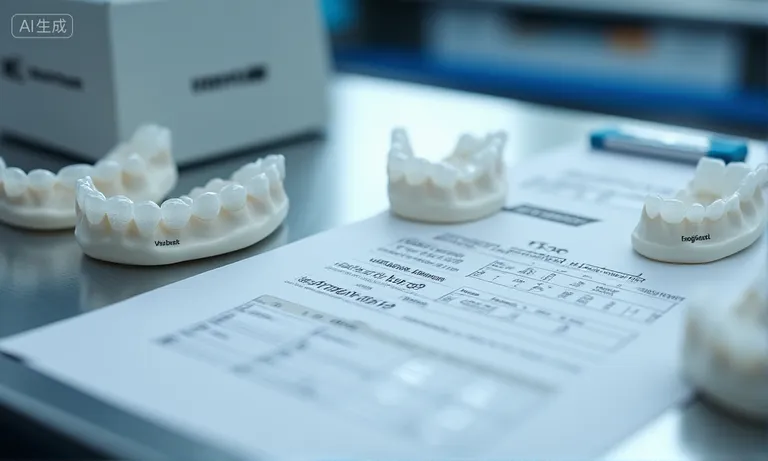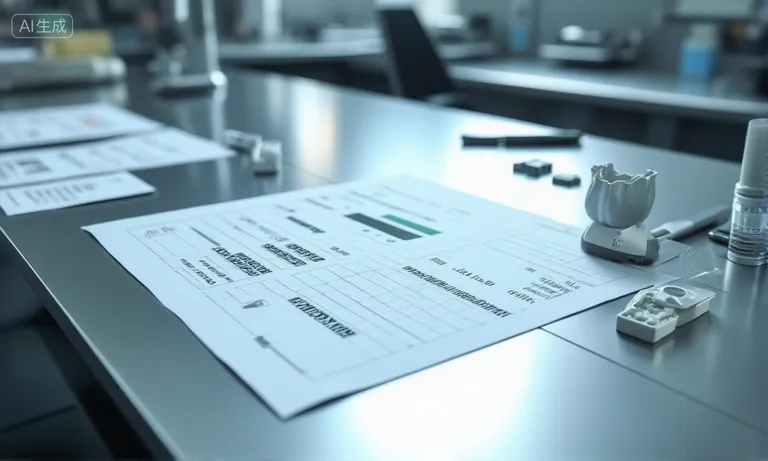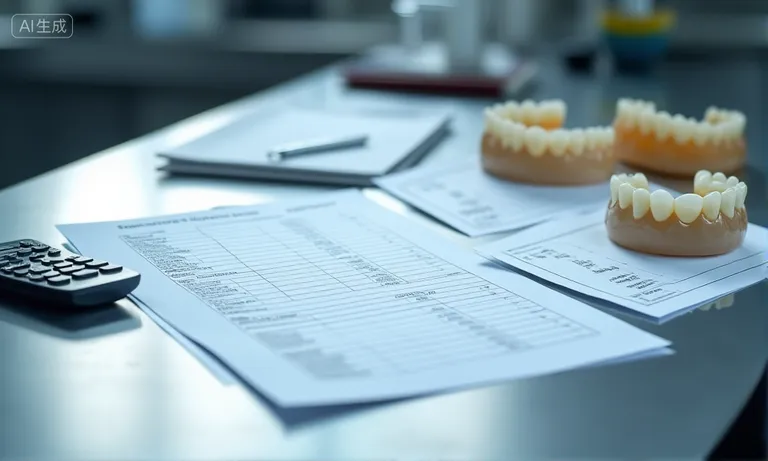Choosing a dental implant lab for a long-term partnership depends on evaluating measurable criteria such as quality consistency, scalability, cost transparency, and digital workflow compatibility. Reliable labs demonstrate their value not only through certifications and turnaround stability but also by building systems that ensure predictable collaboration year after year.
Common Challenges:
- Unclear quality assurance and remake performance that increase hidden risks.
- Opaque cost structures with shipping or rush fees that reduce ROI.
- Slow communication during urgent or complex implant cases.
Effective Pathways:
- Verify compliance through ISO or DAMAS certifications and transparent remake data.
- Compare pricing models and disclose hidden costs to forecast margins accurately.
- Confirm scalability, digital integration, and support mechanisms that reduce disruption.
When procurement leaders assess these elements, they discover which labs can grow with them as dependable partners. The result is not only fewer delays and lower remake rates but also stronger financial clarity and trust—turning an overseas dental lab from a vendor into a long-term collaborator.
What criteria define a reliable dental implant lab for long-term cooperation?
A reliable dental implant lab for long-term cooperation is characterized by consistent quality, the ability to scale production, and compatibility with digital workflows and implant systems. These three dimensions—quality stability, scalability, and digital integration—are the key signals procurement teams rely on to judge whether a supplier can deliver predictability over many years.
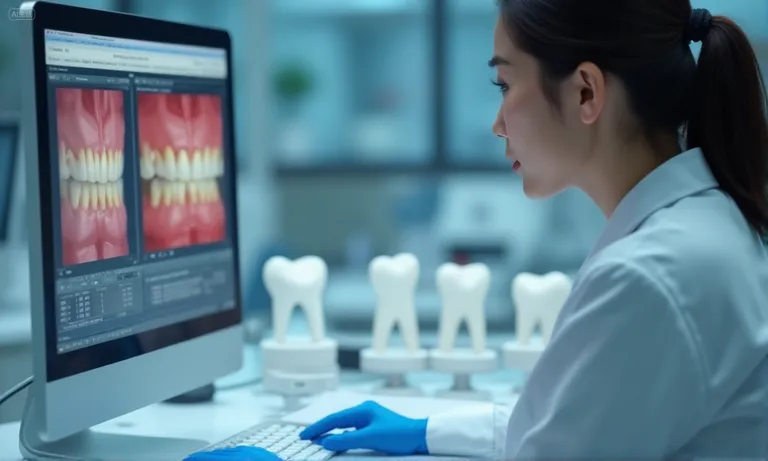
Dental-lab-quality-control-turnaround
What signals demonstrate consistency in quality and turnaround time?
Reliable labs provide tangible evidence of stability. Signals include:
- Published average turnaround times with narrow variance.
- Remake rates consistently below industry benchmarks.
- Batch-level QC logs that can be reviewed by partners.
For instance, some overseas dental labs release quarterly remake reports to their clients, which allows procurement managers to verify performance trends instead of relying on promises.
How does the lab manage production scalability across peak loads or DSO requirements?
A long-term partner must scale without sacrificing accuracy. Key practices are:
- Flexible workforce allocation during seasonal peaks.
- Redundant production lines to balance sudden load increases.
- Defined SOPs tailored for DSO and multi-site clients.
One European distributor reported that delays during nationwide DSO campaigns were their greatest risk. The labs that retained trust were those able to expand capacity threefold for a limited period while holding remake levels steady.
What digital workflows and implant systems are supported by the lab?
Digital compatibility is now non-negotiable. Buyers should confirm whether the lab:
- Accepts STL, exocad, and 3Shape files seamlessly.
- Supports leading implant platforms like Straumann, Nobel Biocare, and Zimmer.
- Maintains CAD/CAM workflow integration to prevent manual rework.
Labs that lag in digital integration often create hidden costs for clinics. By contrast, a global dental lab with broad platform support enables smoother chairside planning and reduces adjustment risks.
Labs that demonstrate quality consistency, scalable systems, and strong digital compatibility establish the trust needed for long-term cooperation. These factors make the difference between a dependable partner and a recurring source of disruption.
How can you assess quality assurance and remake performance?
Assessing quality assurance and remake performance requires more than a quick look at certificates. Reliable implant labs demonstrate compliance with recognized standards, publish transparent remake statistics, and provide referenceable outcomes from peer or client feedback. Together, these elements allow procurement managers to measure not only the lab’s technical capacity but also its willingness to disclose performance openly.

Dental-lab-quality-assurance-audit
What standards and certifications (e.g., ISO 13485, DAMAS) validate lab compliance?
The most reliable labs hold recognized certifications that reflect structured QA systems.
| Certification | Scope of Assurance | Why It Matters |
|---|---|---|
| ISO 13485 | Medical device quality management | Ensures traceable, regulated production practices |
| DAMAS | Dental-specific management system | Adds lab-focused audit requirements beyond ISO |
| FDA Registration | Compliance for US market | Required for importers and distributors targeting US clinics |
| CE Marking | EU product compliance | Mandatory for European market entry |
A lab without external audits may still function, but procurement teams often view certification as the minimum threshold for long-term trust.
How is remake rate monitored and disclosed to partners?
Practical signals of QA discipline include:
- Routine tracking of remake percentages by product category.
- Transparent reporting shared quarterly or annually with clients.
- Defined thresholds where corrective action is triggered if remake levels exceed internal limits.
Some overseas dental labs even benchmark remake rates against industry medians (commonly under 5%). This disclosure helps clinics and DSOs quantify their risk before committing to higher order volumes.
Are clinical outcomes or peer reviews available to reference?
While remake statistics capture technical consistency, procurement managers also seek outcomes data. Peer feedback, whether from clinics, DSOs, or distributor networks, acts as a practical validation layer. For example, one mid-sized US DSO shared that their lab partner reduced remakes by implementing digital margin detection tools. Stories like these, when combined with hard numbers, give buyers confidence that QA systems translate into measurable clinical reliability.
Labs that provide visible certifications, transparent remake metrics, and real-world peer validation reduce uncertainty for partners. In implant cases where errors are costly, this openness is what separates sustainable suppliers from risky ones.
What should you know about cost structure and ROI impact?
Understanding a dental implant lab’s cost structure is essential because hidden fees or unclear pricing models can undermine long-term ROI. Reliable partners disclose pricing frameworks transparently, help clients anticipate extra charges, and design value-based models that improve financial predictability over time.
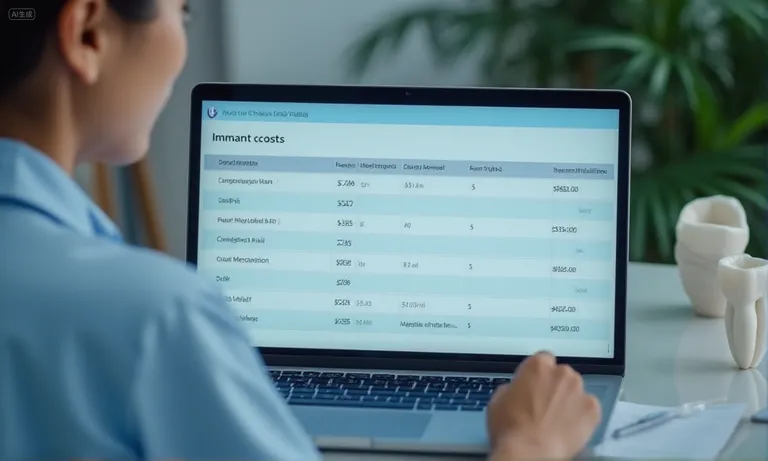
Dental-lab-cost-structure-analysis
What pricing models are available, and how transparent are they in practice?
Labs typically adopt one of several pricing approaches. Transparency is critical so procurement managers can plan budgets without surprises.
| Pricing Model | Description | Long-Term Consideration |
|---|---|---|
| Unit-Based | Flat price per restoration or per implant component | Predictable, but may overlook complexity-based variations |
| Tiered Volume | Discounts tied to order volume | Supports DSOs but requires clarity on thresholds |
| Case Complexity | Adjusted fees for advanced or esthetic cases | Fair if disclosed clearly; risky if applied inconsistently |
When labs publish pricing guides and stick to them, procurement teams gain a higher level of cost confidence.
Are there hidden costs (shipping, rush fees, remakes) that reduce margin reliability?
Beyond base pricing, hidden costs often distort ROI. Buyers should ask specifically about:
- Shipping fees for international or express delivery.
- Rush service charges for urgent turnaround.
- Remake or adjustment costs not included in initial quotes.
In one case, a UK clinic discovered that their lowest-cost supplier actually increased total spending by 12% once remakes and rush fees were added. This underscores why transparent disclosure is often more valuable than simply chasing the lowest unit price.
How does value-based pricing contribute to long-term cost-effectiveness?
Value-based pricing links cost to measurable outcomes, such as lower remake rates or higher consistency. A global dental lab supporting DSO clients in North America structured contracts around remake thresholds: if remakes exceeded a set percentage, fees were adjusted downward. This not only aligned financial risk with performance but also encouraged both parties to collaborate on quality improvements. For procurement leaders, such arrangements shift the discussion from “unit cost” to “total cost of ownership,” which is a more sustainable approach to partnership evaluation.
Transparent pricing models, awareness of hidden costs, and outcome-based agreements give buyers the financial clarity needed to build trust. In long-term cooperation, predictability of ROI is as important as technical accuracy.
How do communication and support systems influence collaboration?
Communication and support systems influence collaboration by determining how quickly issues are resolved, how clearly responsibilities are assigned, and how smoothly daily workflows run. In long-term implant partnerships, efficiency in communication often translates directly into fewer delays, lower remake rates, and higher confidence for procurement teams.

Dental-lab-client-support-communication
Is there a dedicated technical or service contact point for partners?
Reliable labs assign a single point of contact who understands both technical and operational details. This ensures that questions about implant components, file formats, or case scheduling are addressed without delay. Buyers working with global dental labs often highlight how having a dedicated coordinator reduced miscommunication compared to shared email inboxes.
How are feedback, case revisions, and approvals coordinated?
Efficient labs manage revisions and approvals through structured feedback loops:
- Centralized platforms for file uploads and annotated comments.
- Defined turnaround times for reviewing and confirming revisions.
- Clear approval checkpoints before production resumes.
This reduces back-and-forth emails and prevents misaligned assumptions that can delay shipments.
What is the lab’s responsiveness during urgent or complex implant cases?
Response time in emergencies is a critical trust factor. Strong partners establish clear escalation steps:
- Immediate acknowledgement of urgent requests within hours.
- Priority reallocation of technicians to handle the case.
- Direct updates provided until the case is completed and shipped.
A mid-size DSO in Canada shared that their trusted partner was able to deliver a same-week turnaround for an urgent full-arch case because escalation protocols were in place—something that would not have been possible without pre-defined responsiveness.
In practice, procurement leaders find that strong communication structures are as decisive as quality or price. Labs with dedicated contacts, structured revision systems, and clear escalation channels minimize risk and reinforce long-term collaboration.
What builds confidence in a lab’s long-term partnership capability?
Confidence in a dental implant lab’s long-term partnership capability is built through a proven track record, flexibility to adapt to scaling client needs, and formal mechanisms such as agreements or KPIs that ensure accountability. Without these elements, procurement managers often face uncertainty about whether today’s reliable performance will hold under future demands.
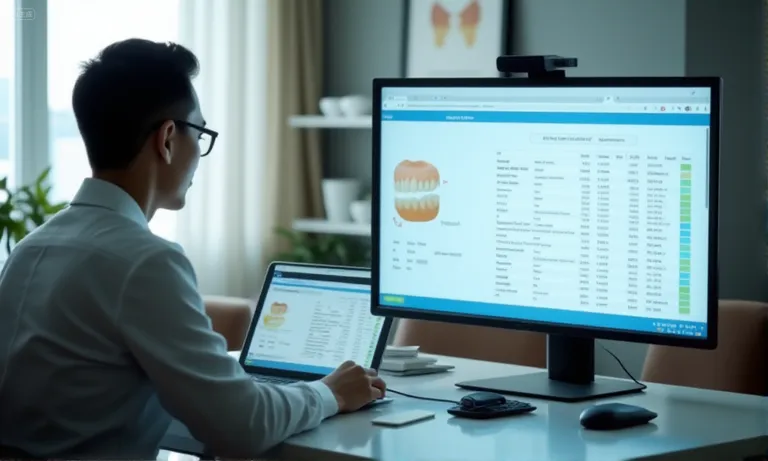
Dental-lab-partnership-kpi-review
What is the lab’s track record with regional clients or multi-year partnerships?
Past performance is one of the strongest predictors of long-term reliability. Procurement managers often request references from clinics, DSOs, or distributors who have collaborated with the lab for three years or more. For example, a Middle Eastern distributor noted that their chosen overseas dental lab had never missed a contractual turnaround deadline in five years, which gave them confidence to expand volume. Documented longevity demonstrates stability beyond marketing promises.
Does the lab provide flexibility to support scaling practices such as DSOs?
Confidence also comes from knowing the lab can handle growth. Key signals include:
- Ability to onboard new sites quickly without disrupting existing orders.
- Flexible capacity allocation during acquisition-driven expansion.
- Custom SOPs tailored to DSO workflows.
Labs that lack scalability often create bottlenecks when their clients grow. By contrast, global dental labs that design adaptable workflows become strategic partners rather than short-term vendors.
Are there formal agreements or KPIs in place to ensure accountability?
Partnerships are strengthened when expectations are quantified.
| Mechanism | Purpose | Benefit for Procurement |
|---|---|---|
| Service-Level Agreements (SLAs) | Define turnaround, remake thresholds, communication times | Reduces ambiguity and protects both sides |
| Key Performance Indicators (KPIs) | Track remake rate, turnaround consistency, case acceptance | Creates measurable accountability |
| Annual Reviews | Formal joint review of performance data | Encourages continuous improvement |
Labs willing to formalize performance indicators show that they are prepared for professional, long-term collaboration.
Procurement leaders consistently find that a history of reliability, demonstrated flexibility, and enforceable agreements together create the foundation for partnership confidence. When labs embrace accountability, they transform from suppliers into dependable collaborators.
How do brand reputation and peer trust influence lab selection?
Brand reputation and peer trust strongly influence lab selection because procurement leaders often rely on third-party validation before committing to long-term cooperation. Reviews, referrals, and industry recognition act as credibility signals that confirm whether a lab’s promises translate into real-world reliability.

Dental-lab-industry-reputation-award
Are there verifiable reviews, referrals, or awards that confirm credibility?
Procurement managers often look for concrete proof of credibility:
- Online reviews from clinics or distributors.
- Peer referrals shared across professional networks.
- Awards or accreditations from recognized dental associations.
These signals help reduce the risk of relying on untested suppliers.
How does the lab showcase case outcomes or publish partner feedback?
Beyond reviews, labs that openly share partner outcomes demonstrate transparency. For example, a global dental lab published anonymized case studies showing how remake rates improved after adopting digital margin detection. For buyers, these real-world insights provide assurance that the lab’s QA systems are delivering practical results, not just theoretical compliance.
Do industry recognitions or thought-leadership contributions exist?
Industry recognition often takes the form of publications, speaking engagements, or awards.
| Recognition Type | Example | Value for Buyers |
|---|---|---|
| Trade Awards | Regional dental technology competitions | Confirms peer validation within the profession |
| Conference Presence | Lectures at IDS or Greater New York Dental Meeting | Shows active contribution to knowledge sharing |
| Published Articles | Features in Dental Economics or lab journals | Positions lab as a thought leader, not just a vendor |
Labs that invest in thought-leadership and visibility signal that they are engaged with global standards and trends, not operating in isolation.
Procurement leaders often conclude that while quality and cost are measurable, reputation and peer trust are decisive tie-breakers. When a lab combines transparent performance with visible industry credibility, it naturally rises to the top of the shortlist.
Conclusion
Evaluating a dental implant lab for long-term cooperation requires more than comparing prices. The most reliable partners prove their value through consistent quality, transparent QA metrics, scalable systems, clear communication, and verifiable industry reputation. When these elements align, procurement leaders gain confidence that performance will remain predictable as demand grows. For global buyers, partnering with an overseas dental lab that integrates digital workflows and embraces accountability transforms the supplier relationship into a sustainable collaboration, ensuring both clinical reliability and financial clarity over time.


